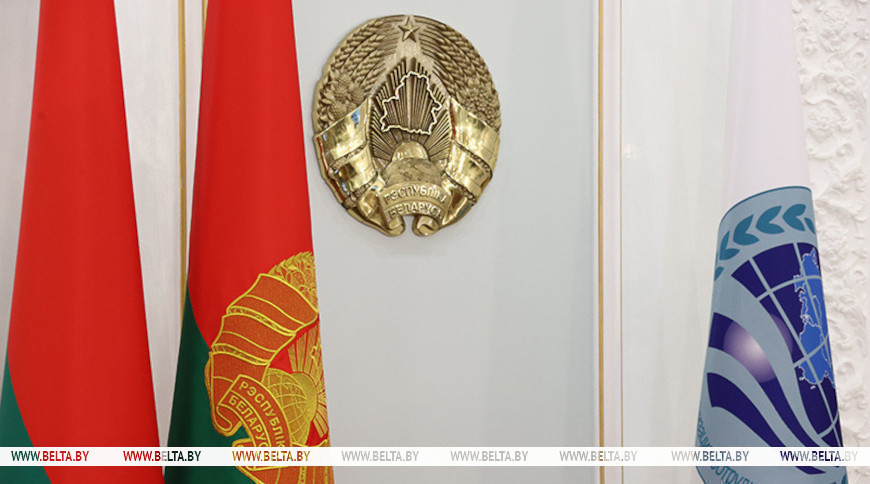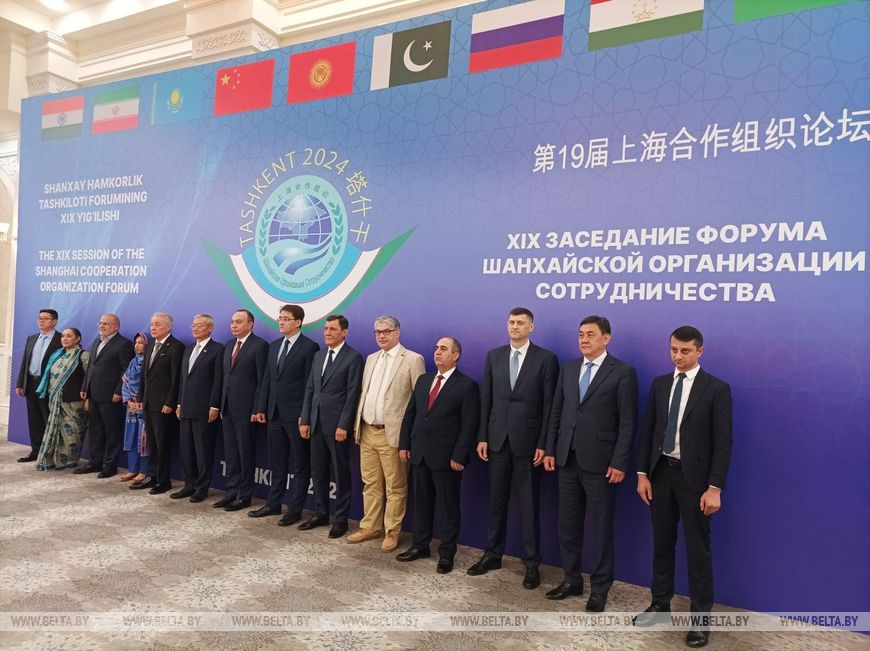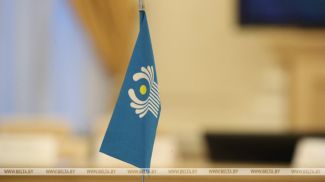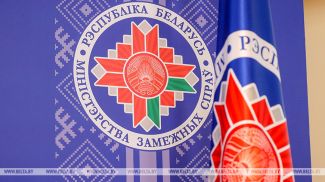
MINSK, 6 June (BelTA) - Our country has consistently and responsibly passed all stages of the development of relations with the Shanghai Cooperation Organization (SCO). After full-fledged entry into the Shanghai family Belarus is ready to actively engage in the work on all dimensions, offering its industrial, scientific, transit and transportation potential, accumulated experience in peacekeeping, and integration competencies, Deputy Director of the Belarusian Institute for Strategic Research (BISR) Vitaly Stakhovsky told BelTA. The BISR delegation is taking part in the 19th meeting of the SCO Forum Tashkent.
The main topic of this year’s meeting is the role of the SCO in new conditions: joining efforts for the sake of common security, stability and prosperity.
Speaking at the opening of the forum, SCO Secretary General Zhang Ming emphasized the achievements. According to the SCO leader, “for more than 20 years of its development, the SCO has transformed from a regional mechanism of meetings of heads of state into the largest comprehensive international organization”. He added that “the number of members of the large SCO family is growing”.
“It is expected that a decision on Belarus’ accession to the SCO will be taken at the upcoming SCO summit in Astana next month. Thus the number of member states will reach a historic record high,” Zhang Ming said.

According to BISR Deputy Director Vitaly Stakhovsky, participation in the meeting is significant as Belarus is expected to get a status of an official member of this internaitonal association at the July summit in Astana. “Today the SCO differs significantly from the organization created at the dawn of the 21st century. Over a short period of time, it has turned into one of the supporting pillars of new international relations,” he said.
“The Shanghai spirit has firmly established itself in the political lexicon as a synonym for trust and coordination of a new quality. Today the SCO has all the features of a system-forming core of true multipolarity, built on the principle trust, treaty-making, and progress,” Vitaly Stakhovsky said.
“Our country has consistently and responsibly passed all the stages of the development of relations with the SCO and after full-fledged entry into the Shanghai family is ready to actively engage in the work on all dimensions, offering its industrial, scientific, transit and transportation potential, accumulated experience of peacekeeping, integration competencies,” the BISR deputy director emphasized.
“Further improvement of the organization's activities seems to be an important step in effective response to new challenges and its adaptation to modern realities. Moreover, as an international organization of a new type, it is important for the SCO not only to adapt to the changing world, accompanying challenges and threats, but also to try to look beyond the horizon of current and future events and trends. Associations that actively shape the development agenda have an advantage. That is why it is so important to finalize and adopt a new development strategy for the SCO until 2035. We believe that this document should, first of all, provide for the completion of institutional and management reform, mechanisms for practical interaction and implementation of existing agreements of the member states, and opportunities for finding the most effective model of trade and economic cooperation. Against the backdrop of the global crisis of confidence, it is critical to put any bilateral problems and contradictions out of brackets in the joint work to strengthen the SCO potential,” Vitaly Stakhovsky explained.
He added: “Being in Uzbekistan, the heart of Central Asia, I would like to emphasize the political significance of this region as the geopolitical core of Greater Eurasia and the SCO as a whole. It is also necessary to take into account the active promotion of counter-strategies by the collective West here. The current situation requires the SCO to take effective joint response steps to prevent crisis situations.”
The SCO forum was established in Moscow in May 2006 as a public consultative and expert mechanism for scientific study of political initiatives and decisions of the heads of the member states adopted and approved at the annual summits. BISR has been participating in its work as an observer since 2020.
The main topic of this year’s meeting is the role of the SCO in new conditions: joining efforts for the sake of common security, stability and prosperity.
Speaking at the opening of the forum, SCO Secretary General Zhang Ming emphasized the achievements. According to the SCO leader, “for more than 20 years of its development, the SCO has transformed from a regional mechanism of meetings of heads of state into the largest comprehensive international organization”. He added that “the number of members of the large SCO family is growing”.
“It is expected that a decision on Belarus’ accession to the SCO will be taken at the upcoming SCO summit in Astana next month. Thus the number of member states will reach a historic record high,” Zhang Ming said.

According to BISR Deputy Director Vitaly Stakhovsky, participation in the meeting is significant as Belarus is expected to get a status of an official member of this internaitonal association at the July summit in Astana. “Today the SCO differs significantly from the organization created at the dawn of the 21st century. Over a short period of time, it has turned into one of the supporting pillars of new international relations,” he said.
“The Shanghai spirit has firmly established itself in the political lexicon as a synonym for trust and coordination of a new quality. Today the SCO has all the features of a system-forming core of true multipolarity, built on the principle trust, treaty-making, and progress,” Vitaly Stakhovsky said.
“Our country has consistently and responsibly passed all the stages of the development of relations with the SCO and after full-fledged entry into the Shanghai family is ready to actively engage in the work on all dimensions, offering its industrial, scientific, transit and transportation potential, accumulated experience of peacekeeping, integration competencies,” the BISR deputy director emphasized.
“Further improvement of the organization's activities seems to be an important step in effective response to new challenges and its adaptation to modern realities. Moreover, as an international organization of a new type, it is important for the SCO not only to adapt to the changing world, accompanying challenges and threats, but also to try to look beyond the horizon of current and future events and trends. Associations that actively shape the development agenda have an advantage. That is why it is so important to finalize and adopt a new development strategy for the SCO until 2035. We believe that this document should, first of all, provide for the completion of institutional and management reform, mechanisms for practical interaction and implementation of existing agreements of the member states, and opportunities for finding the most effective model of trade and economic cooperation. Against the backdrop of the global crisis of confidence, it is critical to put any bilateral problems and contradictions out of brackets in the joint work to strengthen the SCO potential,” Vitaly Stakhovsky explained.
He added: “Being in Uzbekistan, the heart of Central Asia, I would like to emphasize the political significance of this region as the geopolitical core of Greater Eurasia and the SCO as a whole. It is also necessary to take into account the active promotion of counter-strategies by the collective West here. The current situation requires the SCO to take effective joint response steps to prevent crisis situations.”
The SCO forum was established in Moscow in May 2006 as a public consultative and expert mechanism for scientific study of political initiatives and decisions of the heads of the member states adopted and approved at the annual summits. BISR has been participating in its work as an observer since 2020.













